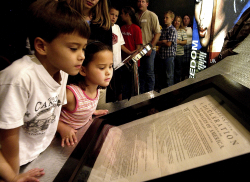The word “science”—particularly as it applies to the STEM field (science, technology, engineering, and mathematics)—carries a host of connotations today: unbiased observation, absolute rationality, unshakeable certainty, assured progress. In Latin, scientia simply means “knowledge,” which itself implies a range of meanings in English. To “know” that Lansing is the capital of Michigan is to know a fact (which could be otherwise); to “know” that 2+2=4 is to grasp the certainty of a mathematical equation (which cannot be otherwise). To “know” a neighbor may amount to mere acquaintanceship, but to “know” your spouse is to share deeply in a common life of mutual intimacy.
For better or worse, these overtones affect our understanding of the fifth gift of the Holy Spirit, “knowledge” (scientia), a gift so closely tied to three others—wisdom (sapientia), understanding (intellectus), and counsel (consilium)—that it can be very hard to distinguish.
What is the gift of knowledge?
First of all, like all seven of the Spirit’s gifts, knowledge completes the natural virtues and leads to their perfection. It makes us docile to God and disposes us to obey His promptings. In other words, the gift of knowledge is anything but a static cognition or mere familiarity with facts, such as where Jesus was born or when He died. Knowledge leads us to a closer relationship with God, inspires us to carry out His will, and moves us to act in accord with the queen of all virtues, charity (cf. Catechism of the Catholic Church, 1831).
At the same time, as St. Thomas Aquinas teaches, the gift of knowledge is not a “practical” virtue (cf. Summa Theologiae II-II, 9, 3), meaning that it is not primarily a knowledge of what to do, but a gift that enables us to cling to the “first truth.” That truth—which, of course, is God—is also the ultimate end for which we act, and therefore extends to our entire life of action. “Faith,” writes St. Paul, “works through love” (Gal.5:6). Hence, the gift of knowledge principally empowers us to see what we are to hold by faith, and it secondarily extends to our actions insofar as through a knowledge of what we believe, we are led to do what is right, just, and charitable.
Aquinas’s explanation may seem dry and scholastic, but it can be of immense help in ascertaining the difference between what STEM understands by science and what the Holy Spirit imparts to us through divine grace. Understanding what “knowledge” means as a spiritual gift has vast implications for our life of prayer and discernment.
When we beg the Holy Spirit for the gift of knowledge, we are not primarily begging to know whether or not we should accept that new job offer, for example. We are rather begging to see God more clearly via the things we believe about Him through faith, which in turn equip us for better discerning whether we should indeed accept that new job offer.
Another way Aquinas puts this is to say that the gift of knowledge pertains properly to the ability to judge created things rightly (cf. ST II-II, 9, 4). Conversely, to judge created things wrongly is precisely how the Book of Wisdom defines idolatry (cf. Wis. 14). We idolize things when we consider them, rather than God, to be the perfect good.
Thus, the Spirit’s gift of knowledge leads us to a greater certainty that God is the source of all good and is Himself the final good. The gift of knowledge can help me make a decision about that new job offer by putting all the created aspects of it in their proper place and ordering them all to their definitive, final end: God.
Am I accepting the new job offer just for the money? Will my children be given greater opportunities for growth in the Catholic Faith through the move? Will the new job afford me more time to spend in prayer and more time to spend with my family? Will the new job surround me with upright, moral colleagues who will keep me on the straight and narrow? In short, will the new job lead me to my final end, God?
It is no accident that Aquinas associates the gift of knowledge with the third beatitude: “Blessed are they who mourn, for they will be comforted” (Mt. 5:4). Spiritual peace and the joy it produces pertain to the gift of wisdom, but mourning over past sins pertains to the gift of knowledge, which, in turn, helps us to order all created things to the perfect divine goodness, which is God. The gift of knowledge allows us to grieve over what we deserve by sin and to find consolation in the gift of redemption Christ has wrought for us.
In a wonderful catechesis on the Holy Spirit’s gift of knowledge, St. John Paul II teaches that knowledge empowers man to discover “the infinite distance which separates things from the Creator, their intrinsic limitation, the danger that they can present, when, through sin, he makes improper use of them. It is a discovery which leads him to realize with remorse his misery and impels him to turn with greater drive and confidence to him who alone can fully satisfy the need of the infinite which assails him” (Regina Coeli, 23 April 1989).
The gift of knowledge neither denigrates STEM nor replaces it. It simply orders it to its proper end. We naturally seek to know a lot of things, but whatever we learn of them remains entirely ineffective for our salvation unless we order it to the one Good who not only makes such knowledge possible but imparts the strength to make all things possible (cf. 1 Cor. 2:10 and Phil. 4:13).
Photo by Héctor J. Rivas on Unsplash
















